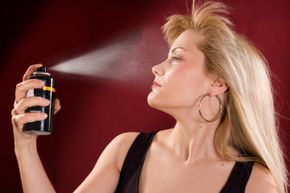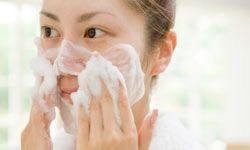Facial mist sprays are just what they sound like: misting bottles or atomizers filled with a liquid designed to soothe, moisturize, relax or rejuvenate your face. They may contain sunscreen, minerals, antioxidants or other ingredients that nourish and protect your skin. Many of them also smell good or, in fancier language, contain aromatherapy oils thought to encourage different moods.
Of course, for the mist effect to work, the main ingredient in all of those little bottles must be water. Some products contain mineral water and others use plain old H2O. You can use them if your face is feeling parched after a dehydrating plane trip, if your makeup has begun to wilt during the day or if you simply want a little spritz of something cool and refreshing.
Advertisement
Mists that are simply mineral water usually cost around $10 to $15, but if you want to buy an upscale version from a big-name cosmetic brand, prices will be higher. There are lots of options: you can go organic or drugstore with many stops in between. And, because facial mist sprays are basically water, you can be thrifty and make your own
Some researchers and consumers have questioned whether a product that is basically just a spray bottle filled with water is really worth the cost. But several kinds of facial mists with multiple purposes continue to sell after years on the market, and many repeat buyers swear by them.
Read on to learn why mist sprays were developed by a bottled-water giant and how to save money by making your own spray at home in your own kitchen.
Advertisement


